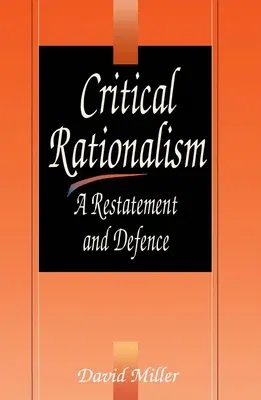Critical Rationalism, Popper's revolutionary approach to epistemology
and scientific method, conceives human knowledge as consisting of
unsupported guesses or conjectures. Investigation is therefore
concerned, not with conclusively justifying our ideas - a hopeless
endeavor - but with inventing new unjustified ideas and ejecting faulty
ideas from the corpus of knowledge by criticism and refutation. The
critical rationalist approach has been attacked by those who contend
that it is little better than pure skepticism or irrationalism, or that
it surreptitiously smuggles in the notion of inductive support. David
Miller elegantly and provocatively reformulates critical rationalism by
answering all its important critics. He presents a full defence of
Popper's solution to the problem of induction, especially in the form
which relates to practical decision-making. All known attempts to
impeach Popper's solution as skeptical, irrationalist, or implicitly
inductivist, are carefully considered and refuted. Critical Rationalism
includes a detailed discussion of the role of probability in scientific
method. Dr. Miller critically dissects the claims of Bayesianism, argues
that objective probabilities do exist in the world, and proposes a new
objectivist interpretation that makes sense of objective single-case
probabilities even in a deterministic universe.

